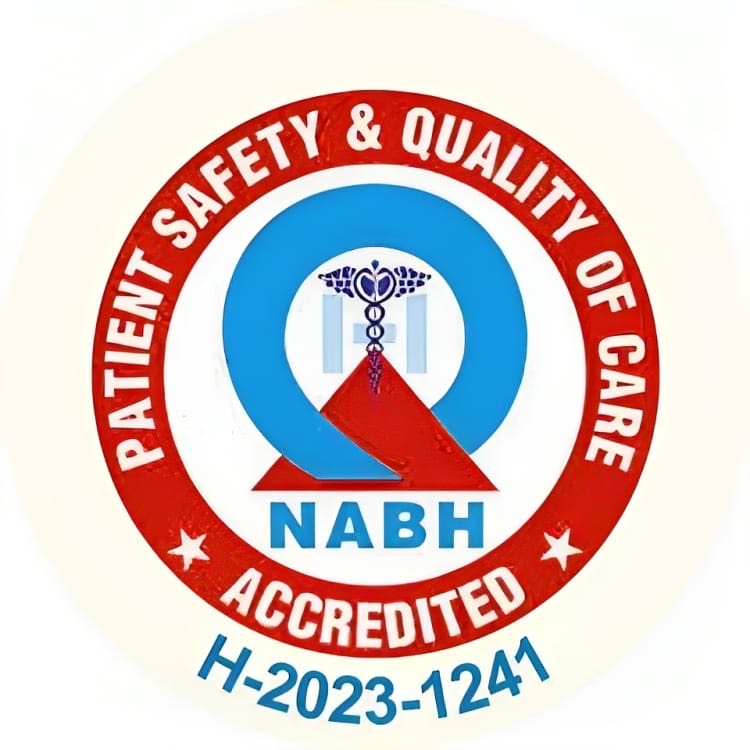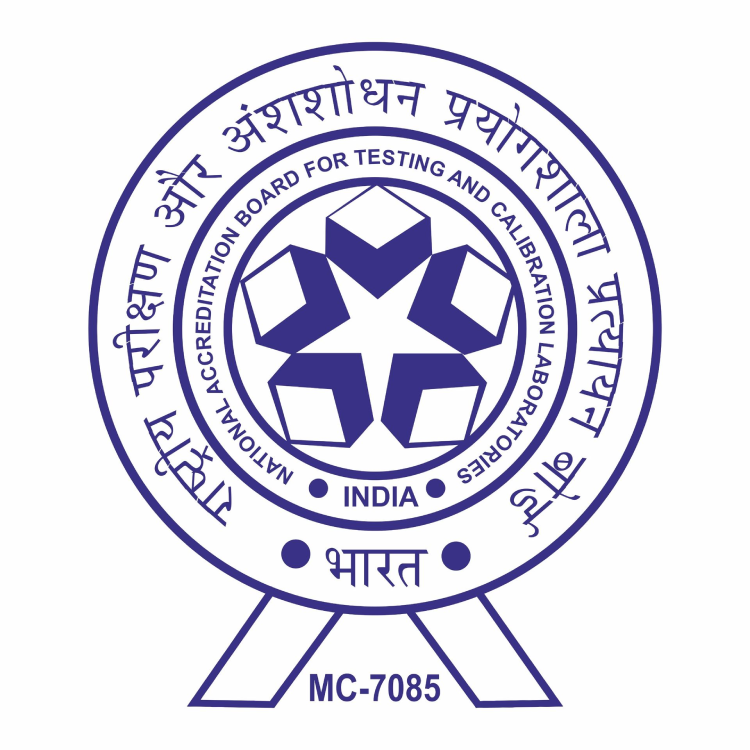Research and Education Program
Global CollaborationsMedical BreakthroughsOngoing Clinical TrialsMedical Courses/CertificationsStructured Internship ProgrammesHealth Awareness for Adolescents
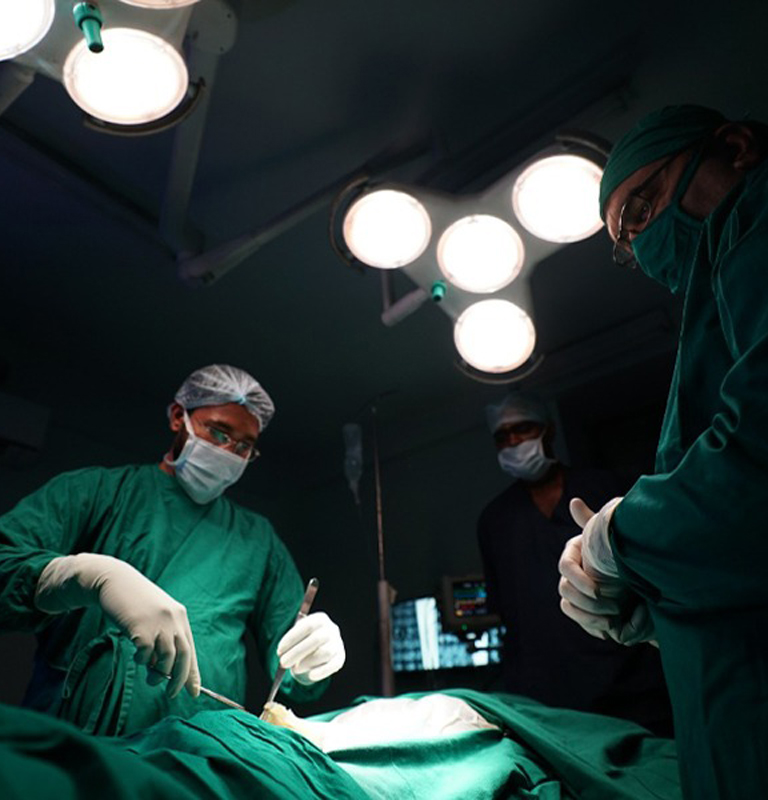
Global Collaborations
1. Stanford University, USA
As part of Shrimad Rajchandra Hospital and Research Centre’s commitment to continuously improving its services and bringing global technology to serve the local rural population, it undertakes various collaborations with leading international organisations. One such flagship collaboration project is with USA’s Stanford University, widely regarded as amongst the top educational institutes in the world.
Since 2018, experienced medical practitioners from Stanford University have been visiting the Hospital annually for a Symposium.
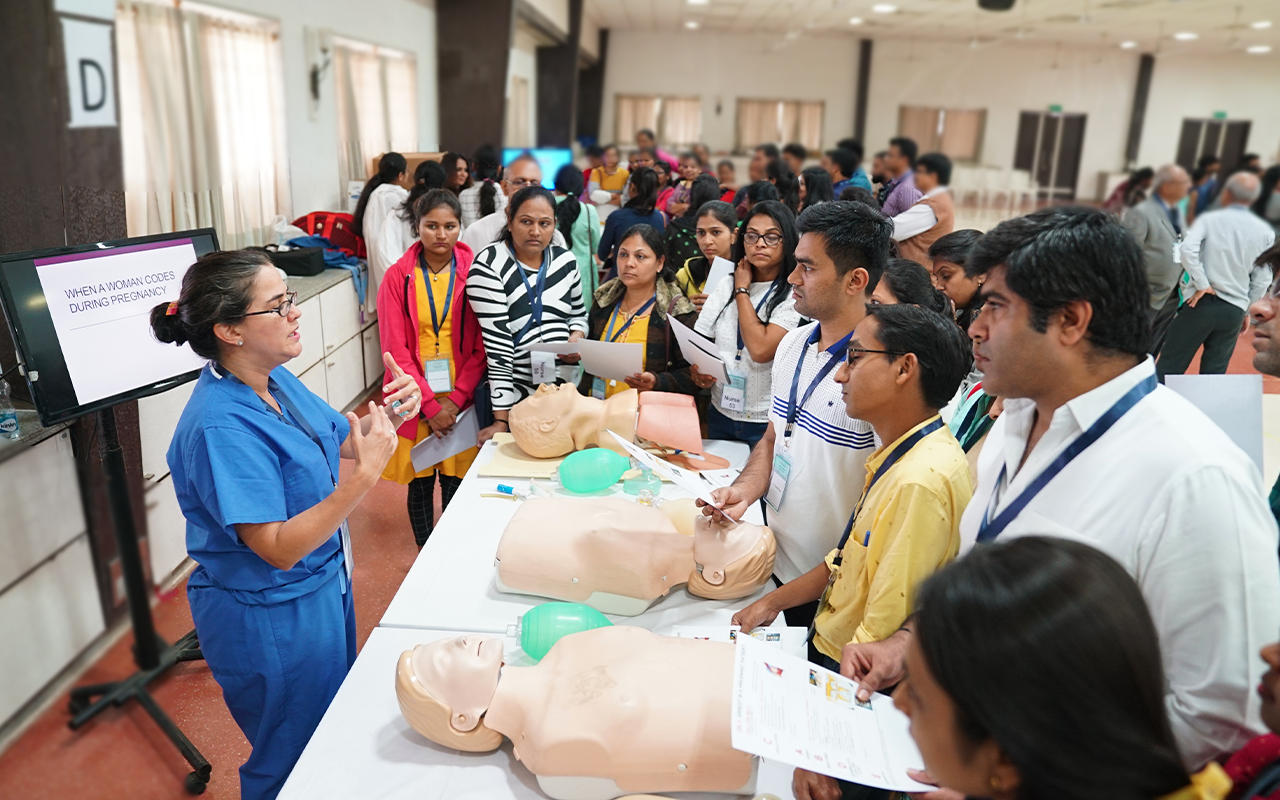
These State-Level Symposia were held at Shrimad Rajchandra Ashram and focused on various aspects of infant care. They were attended by senior doctors, gynaecologists and nurses from across the state of Gujarat.
2. Purdue University, USA
Purdue University, USA and Shrimad Rajchandra Hospital and Research Centre jointly conducted a clinical research study in the tribal areas of South Gujarat, which won the 1st prize in the Technology Accelerator Challenge organised by the National Institutes of Health (NIH), USA. This proposal documents the development and deployment of a ground-breaking technology to detect anaemia and sickle cell disease by analysing the photos of inner eyelids which can be taken by a smartphone.

Medical Breakthroughs
1. Physiological Cord Clamping
A pathbreaking research study on Physiological Cord Clamping was carried out recently at Shrimad Rajchandra Hospital and Research Centre, one of the two centres chosen across India for carrying out the research. The findings of this study were published as an original article in the 30 May, 2019, issue of the prestigious American Journal of Perinatology. The global practice prevailing currently involves cutting the umbilical cord within one to two minutes of delivery and forcing the placenta out of the birth canal with medical assistance.
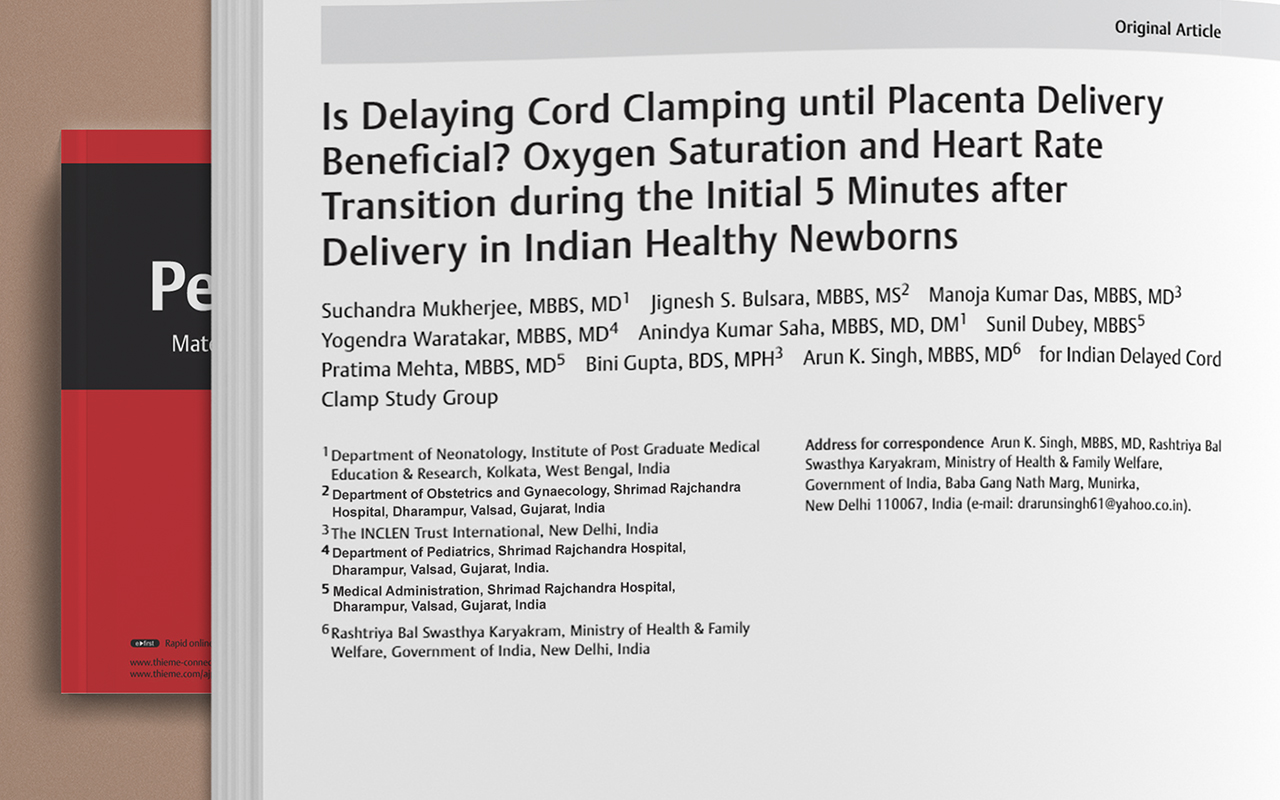
In contrast to this, this study demonstrates the enormously important benefits available to the mother and baby, when, during delivery, the umbilical cord is cut after the placenta is expelled from the birth canal on its own, without medical assistance.
This study was carried out under the guidance and supervision of Professor Dr Arun Singh, MBBS, MD, National Advisor to the Ministry of Health and Family Welfare, Government of India, for the Rashtriya Bal Swasthya Karyakram (National Child Health Programme).
2. Cerebral Visual Impairment (CVI)
Cerebral visual impairment (CVI), one of the most common causes of childhood blindness in the developed world, is increasingly being detected in the Indian scenario as well. CVI is a condition in which despite normally developed eyes, a child is unable to see owing to defects in the neural pathways connecting the eyes to the brain or within the brain itself.
There is no drug treatment that has proved to be effective in the treatment of CVI; however, vision therapy along with multisensory system integration has been found to be effective in the improvement of functional vision.
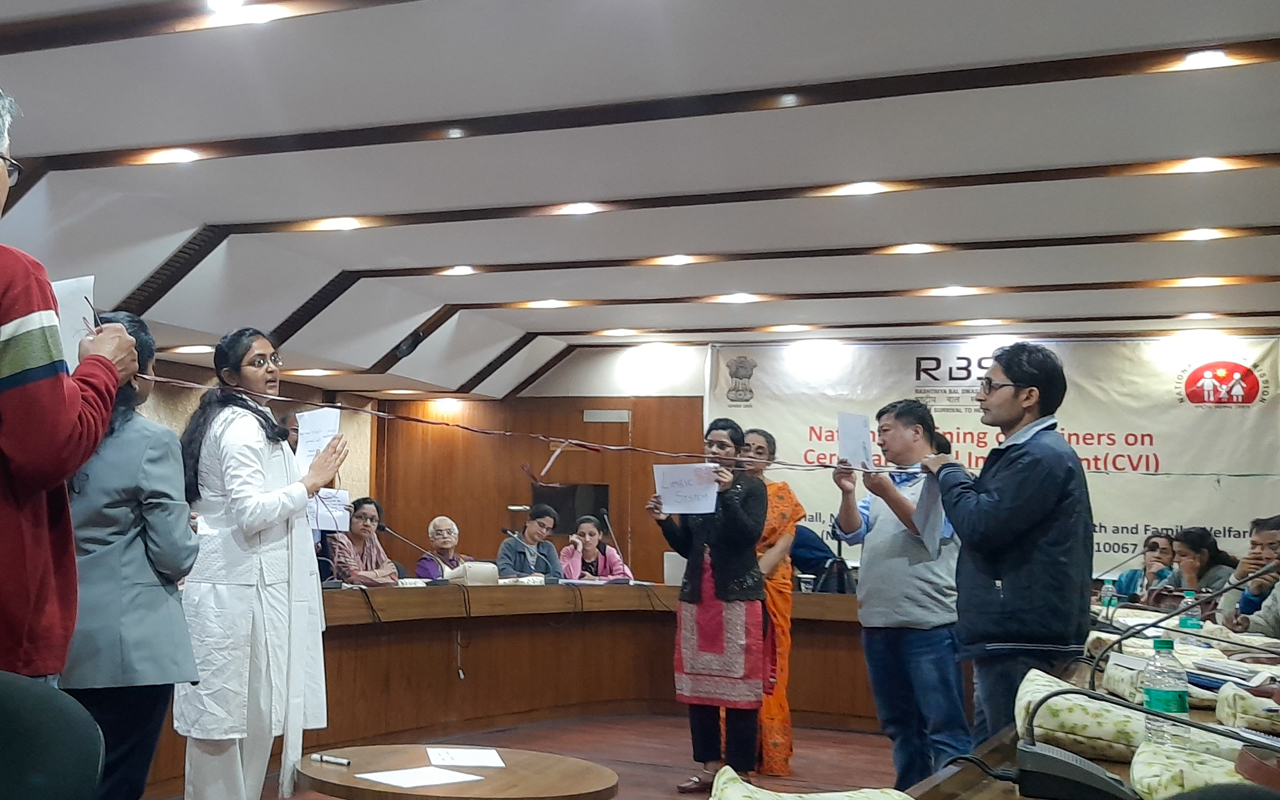
Ongoing Clinical Trials
The prevalence of anaemia is exceedingly high among the tribal populations in and around Dharampur – it is estimated that in this geographical area, more than 50% of the women and 54% of the children are anaemic.
One of the research projects which USA’s Purdue University is pursuing aims to develop a technology that will allow the detection of anaemia and sickle cell disease through a non-invasive and rapid technology that analyses photos of the inner eyelid. This method will facilitate the screening and timely treatment of large segments of the population.
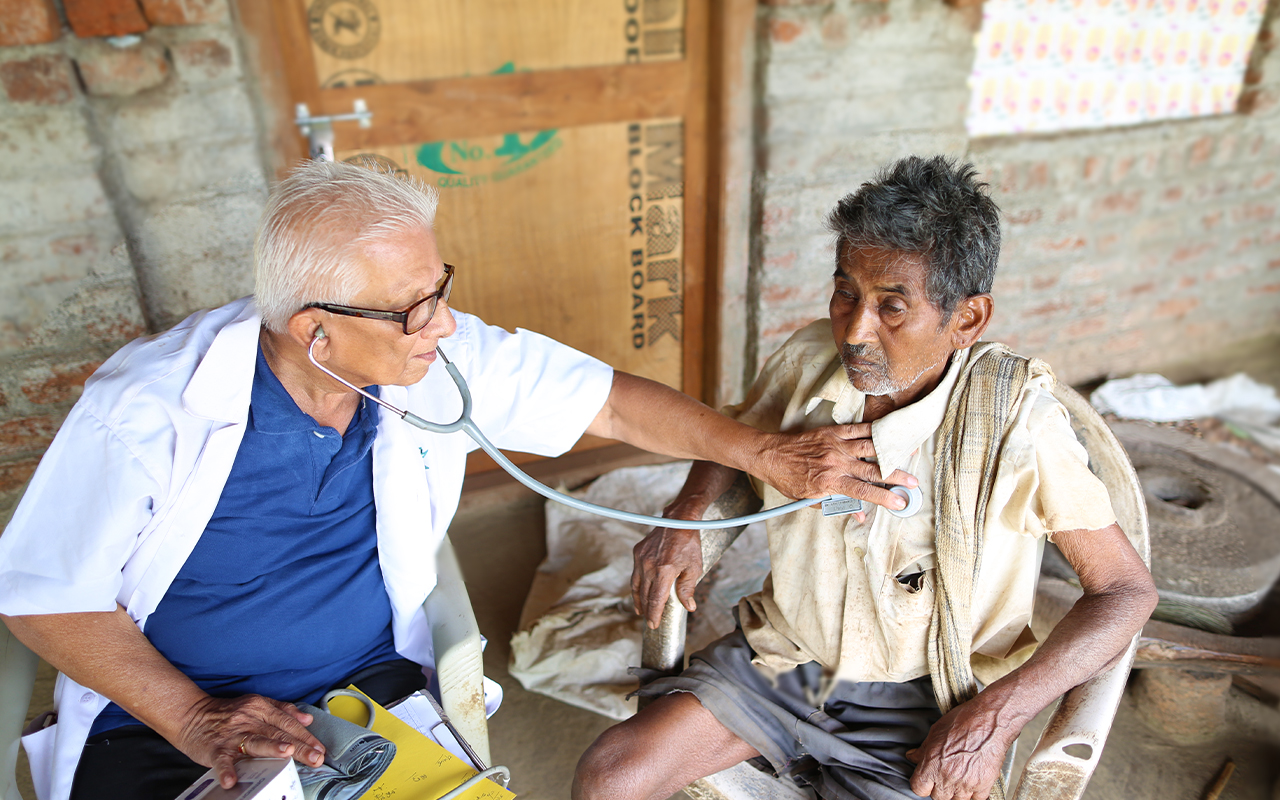
Once this exciting, non-invasive, rapid technology is utilised for detecting anaemia through mass screenings, this programme will certainly make a profound impact on the general health and well-being of communities across the country.
Medical Courses and Certifications
Since 2019, Shrimad Rajchandra Hospital and Research Centre has been offering two-year postgraduate diploma courses: Diploma in Child Health (DCH) and Diploma in Gynaecology and Obstetrics (DGO). These courses, which are conducted by the College of Physicians and Surgeons and are approved by the Government of Gujarat. Currently, 100 seats and 142 seats are available for DCH and DGO, respectively, each year in the state of Gujarat. These seats are distributed among district and subdistrict government hospitals and four NGO hospitals, including Shrimad Rajchandra Hospital and Research Centre.
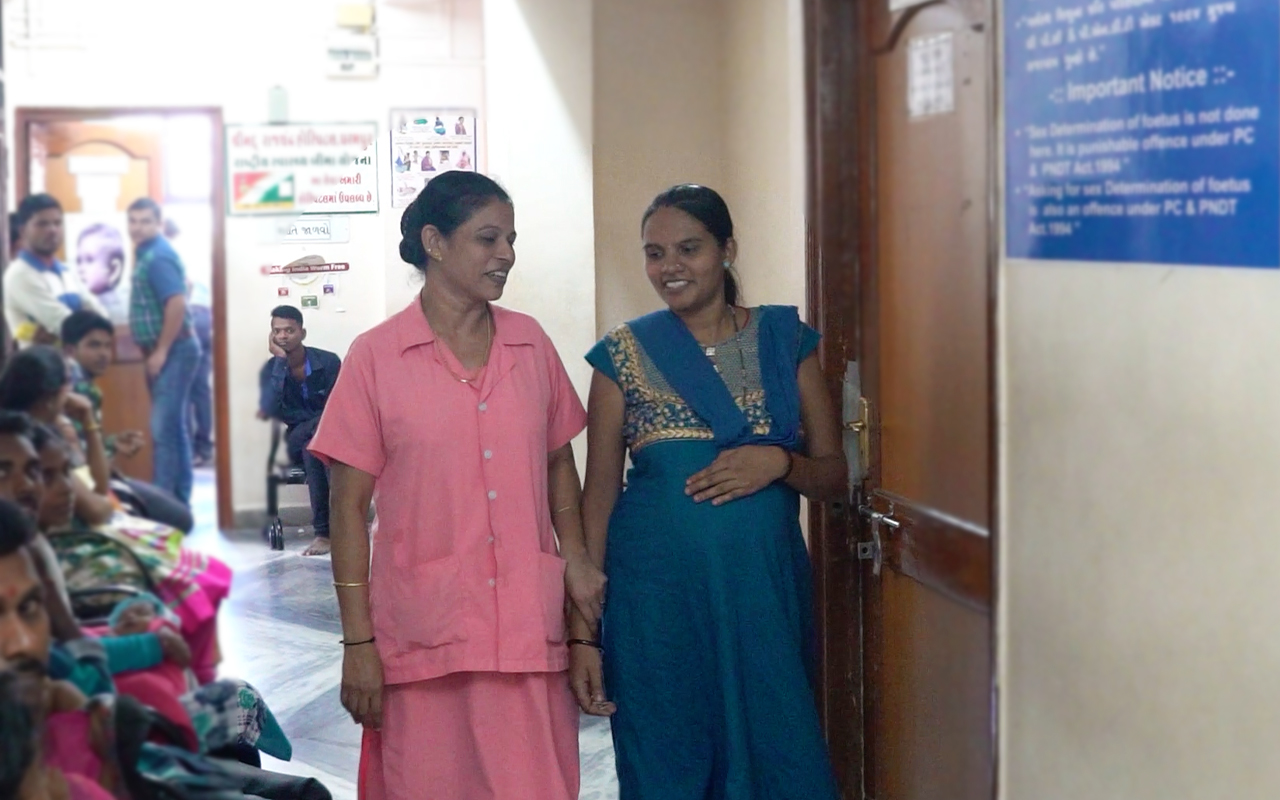
In 2020, some of the most meritorious students preferred to pursue their diplomas with Shrimad Rajchandra Hospital and Research Centre, and the DCH and DGO seats were amongst the first to fill up.
Structured Internship Programmes
Internships for Medical Students from Université Laval, Canada and Lund University, Sweden.
Structured internship programmes offered by Shrimad Rajchandra Hospital and Research Centre are being availed of by Family Medicine Resident Doctors and Medical Students from Université Laval, Canada. Planned in collaboration with Université Laval, the internship programme is for five students – three of their resident family doctors and two medical students. Through these internships, Université Laval hopes to expose their healthcare professionals to a wide range of diseases and health-related problems.
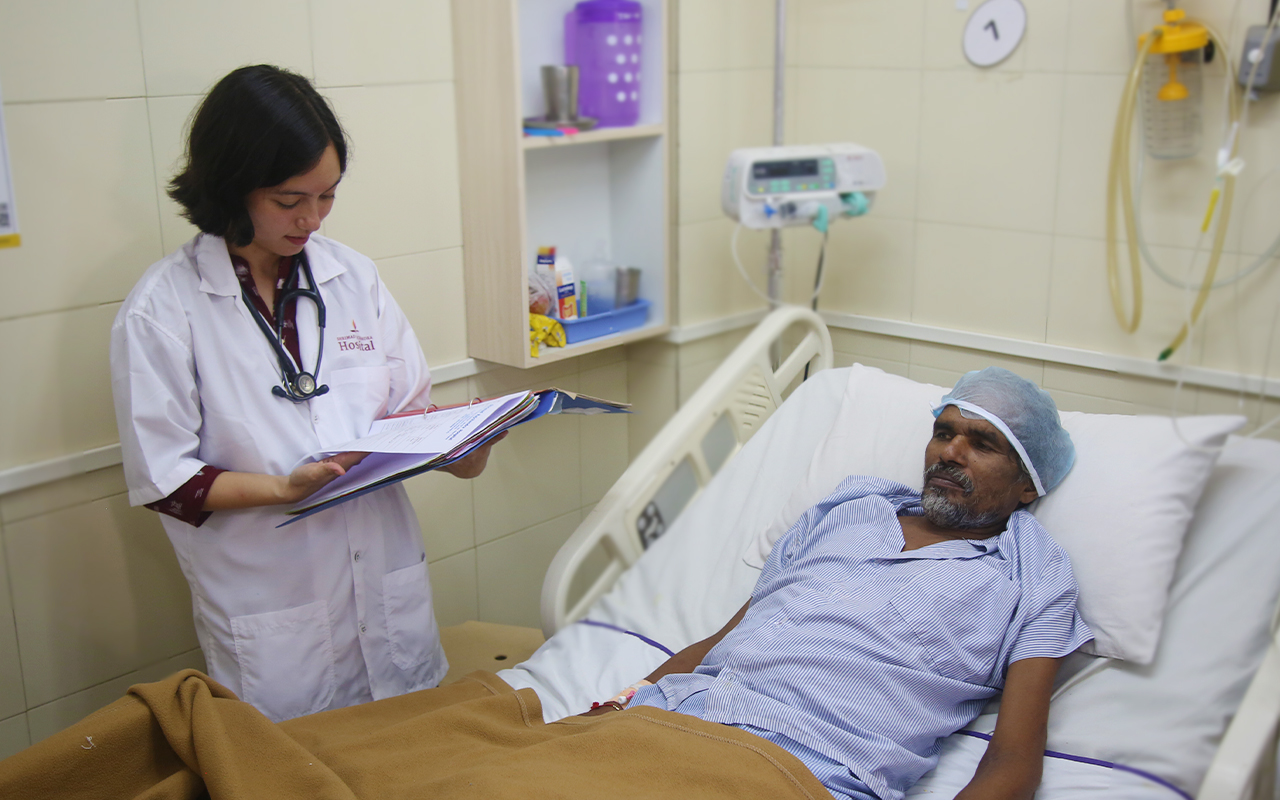
Stanford University, USA
Shrimad Rajchandra Hospital and Research Centre is the only Indian hospital to be listed as a site offered by Stanford University’s for its Mary Duke Biddle Scholarship Programme. It is one of the six globally supported sites in the programme. With this, paediatric trainees and clinical medical students from Stanford will be eligible to spend six weeks or more at the Hospital to provide clinical care.
Health Awareness for Adolescents
Adolescent boys and girls, 12 years and older, are given health awareness lessons through the Shrimad Rajchandra Health Awareness for Adolescents Programme. Through the medium of posters, models, presentations and interactive games, a diverse range of subjects such as the importance of hygiene and nutrition, anatomy and diseases, and prevention of common ailments are discussed with adolescent students.
The lessons are imparted to children in their respective schools or in the modern, fully equipped Shrimad Rajchandra Health Education Centre for Adolescents.
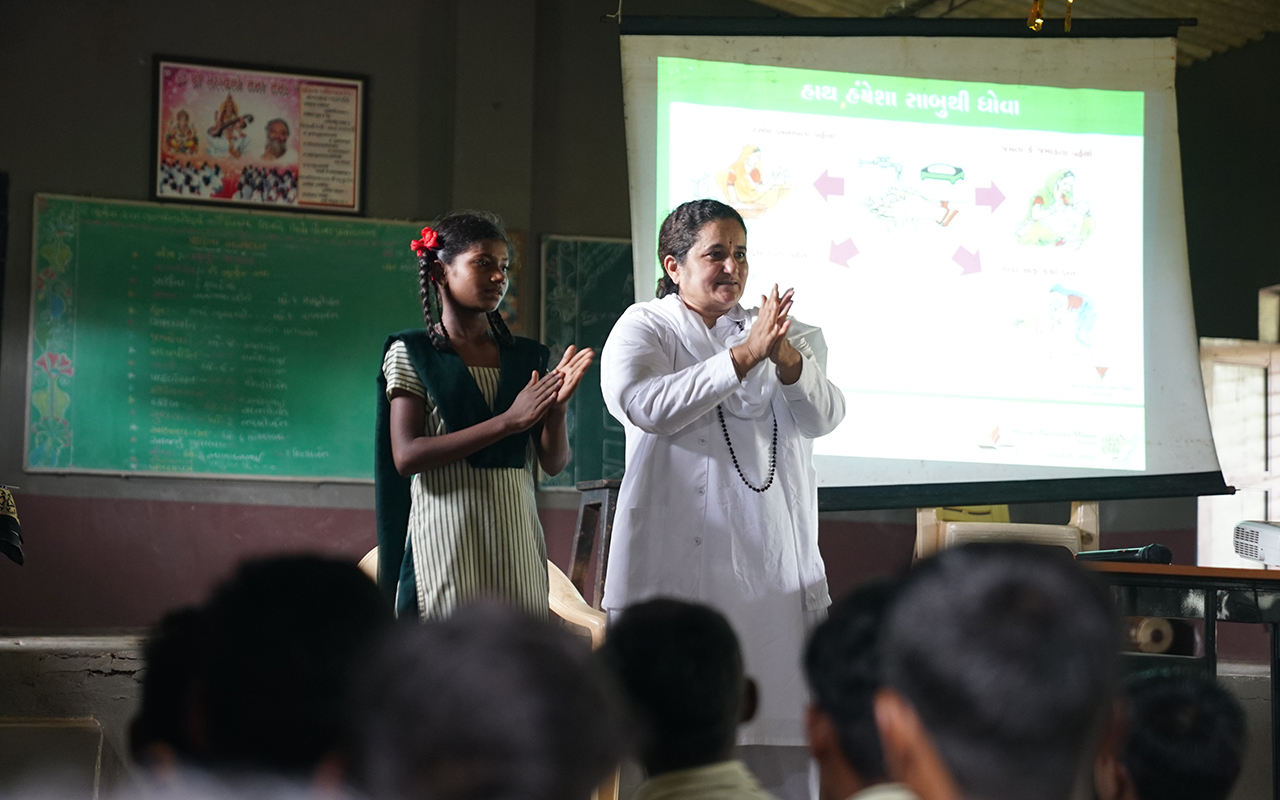
- Adolescent girls are given additional information on reproductive and menstrual hygiene, family planning, safe motherhood, childcare and so on
- Till date, over 600 sessions have been conducted which have benefiting thousands of adolescents.


